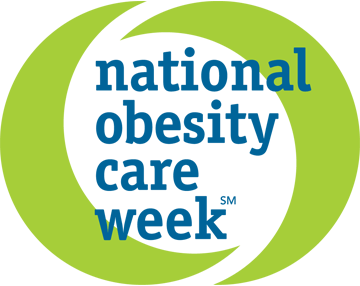 Today, more than 93 million Americans live with obesity. Many don’t know that obesity is a disease and that their healthcare provider can help them manage their weight. Others don’t have insurance coverage to help them pay for valuable obesity treatments and services.
Today, more than 93 million Americans live with obesity. Many don’t know that obesity is a disease and that their healthcare provider can help them manage their weight. Others don’t have insurance coverage to help them pay for valuable obesity treatments and services.
This is why the OAC is a proud Founding Champion of National Obesity Care Week (NOCW), taking place September 15 – 21, 2019. This year’s campaign will focus on access to obesity care. NOCW will spread awareness about what access to care really means, how it can improve, and why it’s important.
Let’s start with part #1. What does “access” to care mean? It is not all about insurance coverage. People with obesity often face barriers to care when they want or need healthcare services.
Examples of Barriers
Not Many Available Healthcare Providers
Not many healthcare providers understand obesity medicine. It is common for some to think diet and exercise are the only (and obvious) solutions. The answer isn’t that simple, though. A patient with obesity should be able to find an entire care team of health providers trained to give science-based care. This care team can include:
- Physicians
- Nurse practitioners
- Physician assistants
- Dietitians and nutritionists
- Bariatric surgeons
- Psychologists and counselors
Lack of Proper Medical Equipment
Think about a normal doctor’s visit. You’re probably familiar with the waiting room chairs, scale, blood pressure cuff and exam gown. Maybe you even have experience with MRI machines and CAT scans.
Not all HCP offices have the proper equipment to accommodate someone with obesity. Many scales have low weight limits, and many exam gowns and blood pressure cuffs are too small. A lot of diagnostic machines and devices cannot measure patients of larger sizes. This can prevent patients from getting necessary information about their health.
Insurance Denials
Obesity treatments can completely change the quality of a patient’s life, and even save their life in many cases. However, very few insurance companies pay for obesity care and weight management such as:
- Bariatric surgery
- Prescription weight management medicine
- Meetings with dietitians
This means that if a patient really needs obesity care, they may have to pay for it out-of-pocket. For those with lower incomes, this isn’t even a possibility, meaning they have to go without help from a HCP.
Required Steps for Coverage
In other scenarios, many insurance companies will provide coverage for obesity care, but only when certain steps are met. These steps may include:
- Referrals from additional HCP’s
- Long wait times before a treatment can be approved
- Mandatory weight-loss of “X” amount
However, weight-loss isn’t always simple and easy. In some cases, treatment is needed as soon as possible. This is especially true if a patient is living with additional obesity-related conditions like diabetes, heart disease or sleep apnea. With so many barriers in the way, accessing treatment can feel impossible.
There are other serious barriers to accessing obesity care, so we will talk more about those in an additional blog post coming next week.
ATTN: Do You Support Access to Care without Barriers?
Do you believe that patients with obesity deserve…
- To have access to care without barriers?
- To be treated with dignity?
- To be given respect?
If yes, join the OAC in supporting National Obesity Care Week (NOCW), taking place September 15 – 21! See below for how you can get involved.
